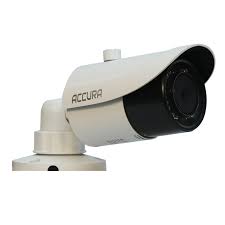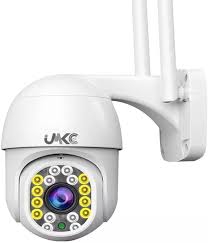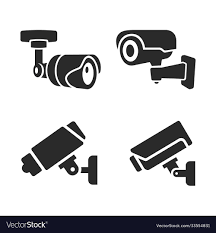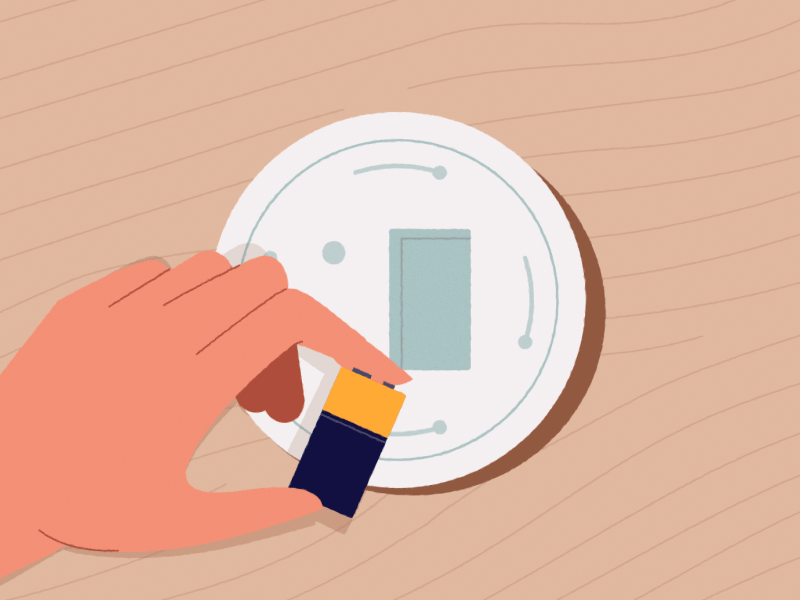CCTV Camera: Enhancing Security and Peace of Mind
In today’s fast-paced world, security is a top concern for individuals and businesses alike. One of the most effective ways to ensure safety and peace of mind is through the use of Closed Circuit Television (CCTV) cameras. These surveillance systems have become increasingly popular due to their ability to monitor and record activities in both residential and commercial settings.
CCTV cameras provide a wide range of benefits that go beyond just deterring potential criminals. Let’s explore some of the key advantages:
- Crime prevention: The presence of CCTV cameras acts as a powerful deterrent against criminal activities such as theft, vandalism, and trespassing. Potential wrongdoers are less likely to target an establishment that has visible surveillance cameras in place.
- Evidence collection: In the unfortunate event of a crime occurring, CCTV footage can serve as valuable evidence for investigations and legal proceedings. High-definition cameras capture clear images that can help identify perpetrators and provide crucial details about the incident.
- Remote monitoring: With advancements in technology, CCTV systems now offer remote monitoring capabilities. This means that users can access live feeds or recorded footage from anywhere using their smartphones or computers. Whether you’re at home, on vacation, or in the office, you can keep an eye on your property or business premises at all times.
- Employee productivity: CCTV cameras not only enhance security but also promote productivity within workplaces. Knowing they are being monitored encourages employees to stay focused on their tasks, reducing instances of slacking off or unauthorized activities during working hours.
- Safety enhancement: CCTV cameras are not limited to detecting external threats; they also play a crucial role in ensuring internal safety within buildings or public spaces. They can monitor areas prone to accidents or identify potential hazards such as fire or unauthorized access to restricted areas.
- Customer confidence: Businesses that invest in CCTV camera systems demonstrate their commitment to customer safety. This builds trust and confidence among clients, leading to increased footfall and repeat business.
- Traffic management: CCTV cameras are extensively used for traffic monitoring and management. They help authorities in monitoring traffic flow, detecting violations, and managing congestion. This leads to improved road safety and smoother traffic operations.
When considering CCTV camera installation, it is essential to choose the right system that suits your specific needs. Factors such as camera resolution, coverage area, night vision capabilities, and storage capacity should be taken into account.
Additionally, it is crucial to comply with legal requirements and ensure that cameras are placed in appropriate locations without violating privacy rights. Consulting with professionals in the field can help you design an effective surveillance system while adhering to legal guidelines.
In conclusion, CCTV cameras have become an integral part of modern security systems. Their ability to deter crime, provide evidence, enhance safety, and offer remote monitoring capabilities make them a valuable investment for both residential and commercial purposes. By deploying CCTV cameras intelligently, individuals and businesses can enjoy enhanced security and peace of mind in an increasingly uncertain world.
7 Essential Tips for CCTV Camera Installation and Usage
- Research the type of CCTV camera that best suits your needs.
- Make sure to place the cameras in a visible location so potential intruders are aware they are being watched.
- Ensure the CCTV camera is connected to a reliable power source and has a backup power supply in case of a power outage.
- Place the cameras in areas where they can capture maximum coverage with minimal blind spots, such as entrances, exits, hallways and other common areas of your property or business premises.
- Consider investing in an IP-based CCTV system for better image quality and easier access to footage from remote locations.
- Regularly check the footage captured by your cameras to ensure it is working properly and no tampering has occurred with any of them or their wires/connections/etc..
- Make sure you’re familiar with local laws regarding surveillance systems before installing one on your property or business premises
Research the type of CCTV camera that best suits your needs.
When it comes to choosing a CCTV camera, it’s essential to research and select the type that best suits your specific needs. With a wide range of options available in the market, understanding the different types and their features will help you make an informed decision.
Start by assessing your requirements. Are you looking for indoor or outdoor surveillance? Do you need cameras with night vision capabilities? Are you interested in cameras with pan-tilt-zoom (PTZ) functionality? Answering these questions will guide you towards the right type of CCTV camera.
For indoor surveillance, dome cameras are a popular choice. They have a sleek design and are less intrusive, making them suitable for monitoring offices, homes, or retail spaces. On the other hand, bullet cameras are commonly used for outdoor surveillance due to their weatherproof construction and longer-range capabilities.
Consider the resolution of the camera as well. Higher resolution cameras provide clearer and more detailed images, which can be crucial when identifying individuals or capturing important details. High-definition (HD) or ultra-high-definition (UHD) cameras are ideal if image quality is a priority.
If you require monitoring in low-light conditions or during nighttime, consider cameras with infrared (IR) capabilities. These cameras use IR LEDs to illuminate the area and capture clear footage even in complete darkness.
Another important factor to consider is whether you need fixed or PTZ cameras. Fixed cameras have a static field of view and are ideal for monitoring specific areas continuously. PTZ cameras, on the other hand, offer remote control over pan, tilt, and zoom functions. This allows for flexible monitoring of larger areas without requiring multiple fixed cameras.
Lastly, think about storage requirements. Depending on your needs, you may opt for local storage using onboard SD cards or network-attached storage (NAS), or choose cloud-based storage options offered by some manufacturers.
By researching and understanding the various types of CCTV cameras available in the market and considering factors such as indoor or outdoor use, resolution, night vision capabilities, and storage options, you can select the camera that best suits your needs. This will ensure that you have an effective surveillance system tailored to your specific requirements, providing you with peace of mind and enhanced security.
Make sure to place the cameras in a visible location so potential intruders are aware they are being watched.
Maximizing the Effectiveness of Your CCTV Cameras: The Power of Visibility
When it comes to securing your property or business premises, the placement of CCTV cameras plays a crucial role in deterring potential intruders. One essential tip to remember is to ensure that the cameras are placed in a visible location, clearly indicating that surveillance is in operation.
The power of visibility cannot be underestimated. By strategically positioning your CCTV cameras in areas that are easily noticeable, you send a strong message to potential wrongdoers that their actions will not go unnoticed. This simple yet effective measure can significantly reduce the likelihood of criminal activities taking place on your premises.
Visible cameras act as a powerful deterrent, as they create an atmosphere of heightened security and vigilance. Intruders who spot these cameras are more likely to think twice before attempting any illegal activities. They understand that their actions will be captured on video, making it easier for law enforcement agencies to identify and apprehend them if necessary.
Moreover, visible CCTV cameras not only deter external threats but also discourage internal misconduct within workplaces. Employees are more likely to adhere to company policies and guidelines when they know they are being monitored. This can help prevent incidents such as theft, unauthorized access, or other forms of misconduct.
When placing your CCTV cameras in visible locations, consider areas with high footfall or vulnerable entry points such as entrances, parking lots, and valuable asset storage areas. It’s essential to strike a balance between maximizing visibility and ensuring optimal coverage of critical areas.
However, while visibility is crucial, it’s equally important to respect privacy rights and legal regulations when installing CCTV cameras. Avoid placing cameras in private spaces such as restrooms or changing rooms where individuals have a reasonable expectation of privacy.
In conclusion, making sure your CCTV cameras are placed in visible locations can significantly enhance their effectiveness as a security measure. By creating an environment where potential intruders know they are being watched, you discourage criminal activities and promote a sense of security. Remember to strike the right balance between visibility and privacy, respecting legal guidelines throughout the installation process. With this simple yet powerful tip, you can strengthen your security measures and enjoy greater peace of mind.
Ensure the CCTV camera is connected to a reliable power source and has a backup power supply in case of a power outage.
Ensuring Reliable Power Supply for Your CCTV Camera
When it comes to the effectiveness of your CCTV camera system, one crucial aspect often overlooked is the power source. A reliable and uninterrupted power supply is essential for the continuous operation of your surveillance system. Here’s why you should pay attention to this important detail and consider having a backup power supply in place.
First and foremost, a CCTV camera relies on electricity to function. Without a stable power connection, your cameras will be rendered useless, leaving your property vulnerable to potential threats. It’s important to ensure that your cameras are connected to a reliable power source that can provide consistent electricity.
Power outages are unpredictable and can happen at any time. Whether due to severe weather conditions or technical issues, an unexpected loss of electricity can leave your surveillance system inactive, creating a security gap. To mitigate this risk, it is highly recommended to have a backup power supply in place.
A backup power supply ensures that even during a power outage, your CCTV cameras will continue operating seamlessly. This additional power source could be in the form of an Uninterruptible Power Supply (UPS) or a backup generator. These devices provide temporary power when the main electrical supply is interrupted, allowing your cameras to keep recording footage without interruption.
Investing in a UPS or backup generator not only ensures uninterrupted surveillance but also safeguards against data loss. In case of sudden power failure, the backup power supply gives you ample time to save recorded footage and prevent any loss of crucial evidence.
Moreover, having a backup power supply enhances overall system reliability. It adds an extra layer of protection against potential burglaries or security breaches during moments when the main electrical supply is compromised.
To ensure that your CCTV camera system remains functional at all times:
- Regularly check the condition of cables and connections between cameras and the main power source.
- Invest in high-quality surge protectors to safeguard against voltage fluctuations.
- Consider installing an Uninterruptible Power Supply (UPS) or backup generator to provide temporary power during outages.
By taking these precautions, you can ensure that your CCTV cameras are always connected to a reliable power source and have a backup power supply in case of emergencies. This way, you can maintain continuous surveillance and peace of mind, knowing that your property is protected around the clock.
Place the cameras in areas where they can capture maximum coverage with minimal blind spots, such as entrances, exits, hallways and other common areas of your property or business premises.
Maximizing Coverage: Placing CCTV Cameras for Optimal Security
When it comes to ensuring the safety and security of your property or business premises, the placement of CCTV cameras plays a vital role. One essential tip to keep in mind is to position the cameras in areas where they can capture maximum coverage with minimal blind spots. By strategically placing the cameras, you can enhance surveillance capabilities and have a comprehensive view of critical areas.
Entrances and exits are prime locations for CCTV camera placement. These points serve as primary access points and are crucial for monitoring who enters or leaves your property. By having cameras focused on these areas, you can easily identify individuals and track their movements, providing valuable evidence if any incidents occur.
Hallways are another key area where cameras should be positioned. They act as thoroughfares within buildings, connecting various rooms and spaces. Placing cameras along hallways ensures that any movement within these pathways is captured, minimizing the risk of unauthorized access or suspicious activities going unnoticed.
Common areas such as lobbies, waiting rooms, or gathering spaces should also be covered by CCTV cameras. These areas often witness high foot traffic and interactions among people. Having cameras in these locations helps monitor crowd behavior, identify potential threats or disturbances, and maintain a safe environment.
While focusing on these key areas, it’s important to consider the layout of your property or business premises. Take note of blind spots – areas that may be obstructed from camera view due to structural elements like pillars or walls. By strategically positioning the cameras and adjusting their angles, you can minimize blind spots and ensure comprehensive coverage.
Additionally, consider factors such as lighting conditions when placing CCTV cameras. Adequate lighting is essential for capturing clear footage. Install additional lighting sources in poorly lit areas or choose cameras with night vision capabilities for 24/7 monitoring.
Remember that every property is unique, so it’s crucial to assess your specific requirements when determining camera placement. Conduct a thorough evaluation of your premises, considering potential vulnerabilities and high-risk areas. Consulting with security professionals can provide valuable insights and help you design an effective surveillance system tailored to your needs.
By following this tip and strategically placing CCTV cameras in areas like entrances, exits, hallways, and common spaces, you can maximize coverage and minimize blind spots. This ensures that your property or business premises are under constant surveillance, providing you with peace of mind and an added layer of security in today’s unpredictable world.
Consider investing in an IP-based CCTV system for better image quality and easier access to footage from remote locations.
Consider investing in an IP-based CCTV system for enhanced security and convenience. IP cameras, also known as network cameras, offer several advantages over traditional analog cameras.
Firstly, IP cameras provide superior image quality. With higher resolution capabilities, they capture clear and detailed footage, allowing for better identification of individuals or objects. This is especially crucial when it comes to identifying potential threats or gathering evidence for investigations.
Secondly, IP cameras offer the convenience of remote access to live feeds and recorded footage. By connecting the cameras to a network, users can access the footage from any location using a computer, smartphone, or tablet. This feature is particularly beneficial for businesses with multiple locations or homeowners who want to keep an eye on their property while away.
Furthermore, IP-based CCTV systems are scalable and flexible. It is easier to add or remove cameras as per your changing security requirements without significant infrastructure modifications. Additionally, these systems often come with advanced features such as motion detection and analytics that can improve overall surveillance effectiveness.
Another advantage of IP cameras is their compatibility with other security systems. They can be integrated with access control systems, alarms, and video management software to create a comprehensive security solution tailored to your needs.
When considering an IP-based CCTV system, it is important to ensure that your network infrastructure can support the increased data flow from multiple camera feeds. Adequate bandwidth and network stability are crucial for smooth operation and reliable remote access.
In conclusion, investing in an IP-based CCTV system offers improved image quality and convenient remote access to surveillance footage. Whether you are a homeowner or a business owner, this modern technology provides enhanced security capabilities and flexibility for your specific needs. Upgrade your surveillance system today for better peace of mind and efficient monitoring of your premises from anywhere in the world.
Regularly check the footage captured by your cameras to ensure it is working properly and no tampering has occurred with any of them or their wires/connections/etc..
Regularly Checking CCTV Footage: Ensuring Optimal Performance and Security
When it comes to the effectiveness of your CCTV camera system, regular maintenance and monitoring are key. One important tip to keep in mind is to regularly check the footage captured by your cameras. This simple practice can help ensure that your cameras are working properly and that no tampering or interference has occurred with any of them or their associated wires, connections, or components.
By regularly reviewing the footage, you can identify any potential issues or anomalies that may compromise the security of your premises. Here’s why this tip is crucial:
- Detecting malfunctions: By consistently checking the captured footage, you can quickly identify if any of your cameras are malfunctioning or not recording properly. This proactive approach allows you to address technical issues promptly, such as camera misalignment, lens obstruction, or power supply problems. Regular checks help maintain the integrity and reliability of your surveillance system.
- Ensuring uninterrupted coverage: Any tampering with CCTV cameras or their wires can disrupt their functionality and compromise the surveillance coverage they provide. Regularly reviewing footage allows you to spot any signs of physical interference, such as damaged cables, loose connections, or unauthorized adjustments to camera angles. By addressing these issues promptly, you can ensure uninterrupted coverage and minimize blind spots in your security setup.
- Monitoring for suspicious activities: Regularly checking CCTV footage not only helps detect technical issues but also allows you to monitor for suspicious activities within the camera’s field of view. By carefully reviewing recorded footage, you may identify any unauthorized access attempts, vandalism attempts, or other suspicious behaviors that may require immediate attention.
- Enhancing overall security: A well-maintained CCTV system acts as a strong deterrent against criminal activities. By regularly checking your camera footage and addressing any potential problems promptly, you send a clear message that surveillance is actively monitored and maintained on your premises. This alone can discourage potential wrongdoers and enhance the overall security of your property.
To implement this tip effectively, establish a routine schedule for checking the footage captured by your cameras. This could involve daily or weekly reviews, depending on the level of security required and the nature of your premises. Additionally, consider investing in remote access capabilities that allow you to monitor footage from anywhere, ensuring constant vigilance even when you’re not physically present.
In conclusion, regularly checking the footage captured by your CCTV cameras is an essential practice for maintaining optimal performance and security. By promptly addressing any technical issues or signs of tampering, you can ensure uninterrupted coverage and deter potential threats effectively. Stay proactive and vigilant in monitoring your CCTV system to enjoy peace of mind knowing that your surveillance is functioning at its best.
Make sure you’re familiar with local laws regarding surveillance systems before installing one on your property or business premises
Before installing a CCTV camera on your property or business premises, it is essential to be aware of and familiarize yourself with the local laws and regulations regarding surveillance systems. Each region or country may have specific guidelines and requirements that govern the use of CCTV cameras.
Understanding these laws is crucial to ensure that you comply with legal obligations and respect the privacy rights of individuals. Violating these regulations can lead to legal consequences, including fines or even criminal charges.
Some key points to consider when researching local laws include:
- Consent: In many jurisdictions, it is mandatory to obtain consent from individuals before capturing their images or recording them on CCTV. This consent may need to be obtained through clearly visible signs indicating the presence of surveillance cameras.
- Placement: Certain areas, such as private spaces like restrooms or changing rooms, are generally off-limits for surveillance cameras due to privacy concerns. Familiarize yourself with the specific rules regarding camera placement in different settings.
- Data Protection: Understand how long you can retain recorded footage and what measures you need to take to protect this data from unauthorized access or misuse.
- Notification: Some regions require that you inform individuals about the purpose of CCTV monitoring and provide contact information for inquiries or complaints.
- Public Areas: If your CCTV camera overlooks public spaces, there may be additional restrictions on how you can use the footage obtained from those areas.
By being proactive in researching and adhering to local laws, you can ensure that your CCTV camera installation remains legally compliant while safeguarding privacy rights. It is advisable to consult legal professionals or local authorities if you have any doubts or questions regarding the regulations in your area.
Remember, responsible use of CCTV cameras not only helps protect your property but also respects the rights and privacy of others within your community.




